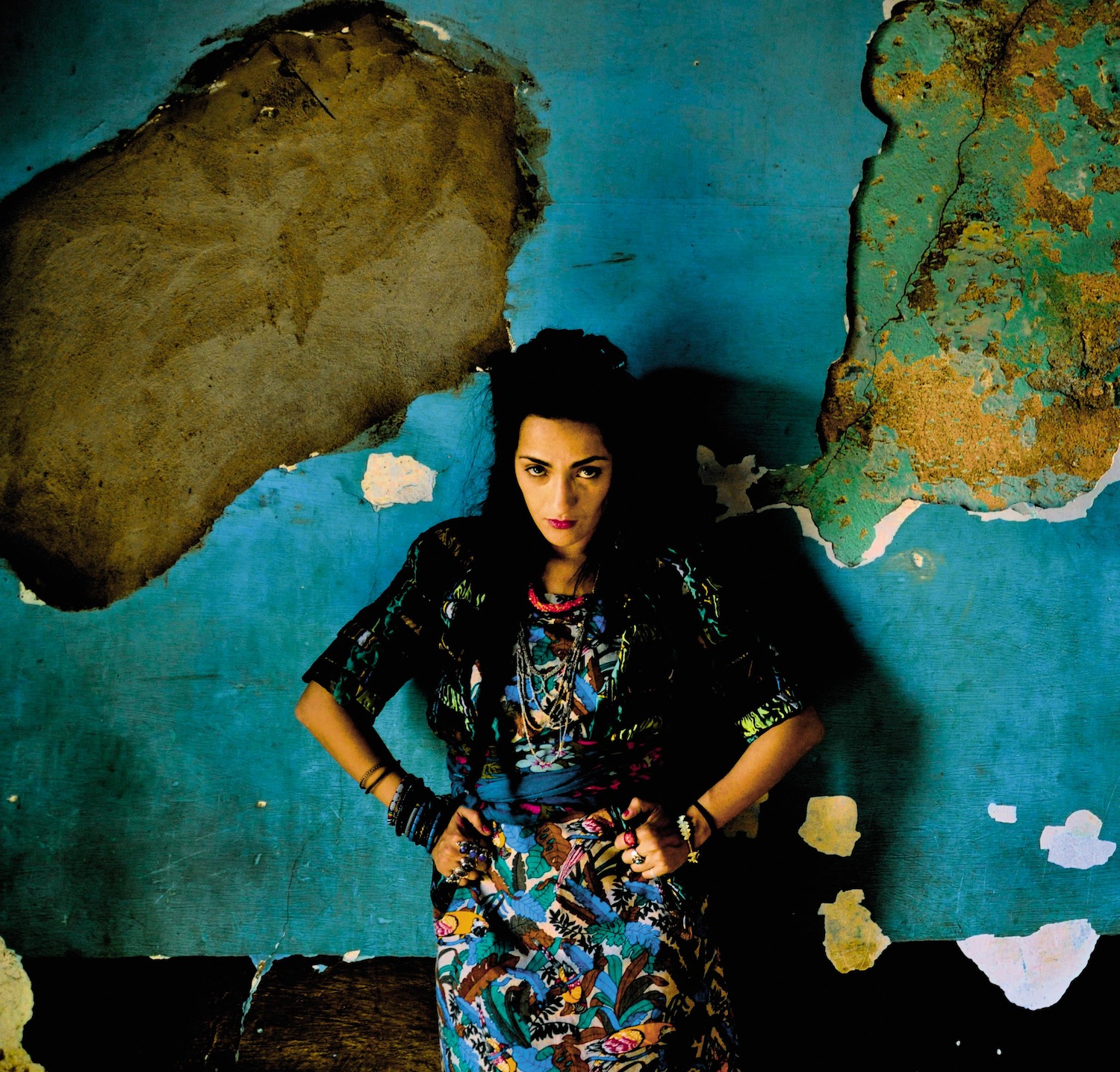Discovery: Hindi Zahra

HINDI ZAHRA
Although people constantly tried to convince Hindi Zahra to make an album, she wanted to wait until she was ready to begin working on the album. The Moroccan-born, Parisian-bred singer-songwriter has collected ten years of her personal life into her upcoming debut album, Handmade. She began creating her debut at 28 and has concluded the journey four years later.
Zahra loves to tell stories—but only about her own lived experience—in her music. She has garnered comparisons to Billie Holiday, Janis Joplin, and Patti Smith. With a little bit of blues, jazz, and unorthodox folk, Zahra has arranged her entire debut album herself. Zahra will be making waves during October’s CMJ festival in New York. We caught up with the up-and-coming artist on the influence of movie music, the steps for creating songs and why she chose to sing in English for most of her album.
AGE: 32
HOMETOWN: Khouribga, Morocco
INTERNATIONAL INFLUENCES: It’s a mix of different music, because I was born in Morocco and we are used to listening to a lot of different kinds of music—especially to cinema and TV, because we had a lot of Egyptian films, but also Indian films and also Hollywood films. Jazz, rock, Oriental, too. It’s Africa. We have all the African music. So, I really get focused on black music coming from America, Oriental music coming from Egypt and also from south Morocco; it’s the Desert Blues, what we call the “rock of the desert.”
ON COMING UP WITH THE PERFECT ALBUM TITLE: I didn’t want to think about the title of the CD. I really thought that one day it would come all along. I had this word that was in my head. I really never thought about it, like, “Okay, I’m doing this music this way, so that the name should be linked to the way that I am working on the album.” It was really natural. I had “Handmade” in my head. It came back four or five times. I wrote it on paper. I said, “Okay, it will be this one, and it goes perfectly with what I’m doing.” For music, it’s good to let it come alone, not to force the idea.
BEING HONORED BY COMPARISONS: The first one was Billie Holiday, but I thought that it was too much. First, because I heard a lot of Ella Fitzgerald more than Billie Holiday. Also, because the voice of Billie Holiday is tortured. It’s a voice that you can feel all of the things that she’s done to her body. So, I didn’t think we had the same voice, but I was very honored for that comparison. After the concert, people wanted to compare me to Janis Joplin, which I am so surprised about, because I don’t listen to Janis Joplin at all. And I don’t think I sound like her, but it’s the mystery of it. People hear something in my music. The most beautiful one was, I think, the “African Patti Smith.” It was when we played in London.
FEMALE ROLE MODELS: I think my role models were the female voices of the ’30s and ’40s and onto the ’50s. It’s very romantic. And also because I think at that time, the female voices were more engaged emotionally than men at that time. It was very strong. I think about Edith Piaf, Yma Sumac from Peru, and also Maria Callas, the opera singer. It is the same generation, we have Billie Holiday, Ella Fitzgerald and Edith Piaf. The way they used to sing, it was so engaging. You can feel their lives are in the way that they sing. You can see that it was really important for them to sing. I think about the way I like music and also, interpretation. When I was in Morocco, I really felt linked to this kind of singing: the blues. All these women, in every style, were singing the blues. I think it reminds me also of the singers we have in Morocco and the way they sing. It’s the same way.
THE HISTORY OF HANDMADE: It took a very long time for me to make this album. I started when I was 28, to record the album. I took all that time, because all the people that were telling me, “You have to record an album.” I said, “I don’t have things to say right now. I will make it when I have something to tell.” Handmade is the story of what I lived, ten years before I made the album. It was also when I was ready to sing these things. It is my personal life. I don’t create stories. I think the music, for me, is a way to express the way I feel. The way I feel is directly linked to what I have lived. Also, I choose English because it is a way to have space between the things I say. It would be very hard for me to sing my love stories in my mother’s tongue. In the Berber, I talk about different stories. Especially in “Oursoul,” when I talk about the story of my parents. They had to get married, not really forced, but the system was like this in the village. You had to get married. Berber was the easiest way to express and talk about this.
PERSPECTIVE-CHANGING SONGS: “Set Me Free,” because it was when I realized that love is not only getting attached or depending on someone else. It was really linked to what I felt at that time. After this song, when I recorded it, I really think that I’ve changed my way of seeing things. “Old Friends,” because this song is dedicated to my ancestors. “Beautiful Tango,” because this song really changed my life and changed my music. This song came so naturally and so quickly. The first part was written and the rest was improvised. It makes it, to me, very special.
STEPS FOR SONGWRITING: When I write, I write step-by-step. I just write a few words, and then I come back to the words. I have a lot of songs that have just four words. It starts like this, and I came back one or two years after. I work on it when I have a feeling to do it. I never force myself to do something. I think that I have to respect the inspiration. I just understood that you have to leave things, feel things, travel, meet people, get alone—and after, the music and lyrics come.
HINDI ZAHRA’S DEBUT ALBUM, HANDMADE, COMES OUT OCTOBER 11. SHE WILL PLAY AT THE CMJ FESTIVAL IN OCTOBER. FOR MORE ON ZAHRA, VISIT HER MYSPACE.






